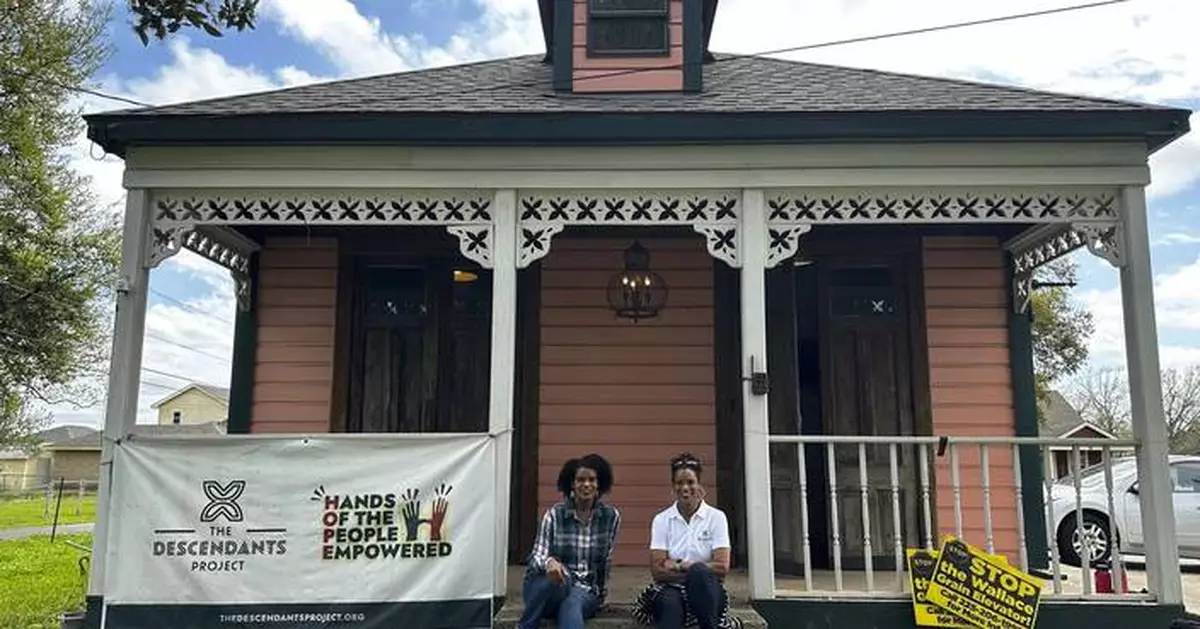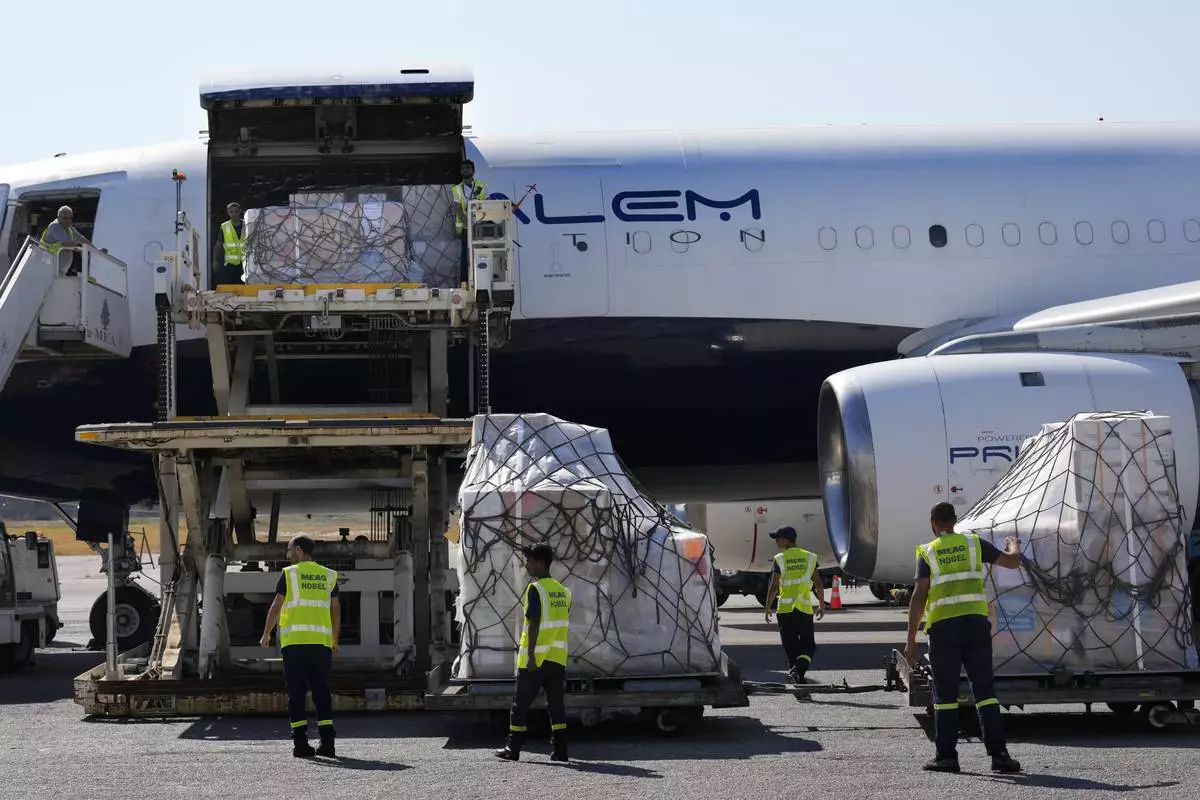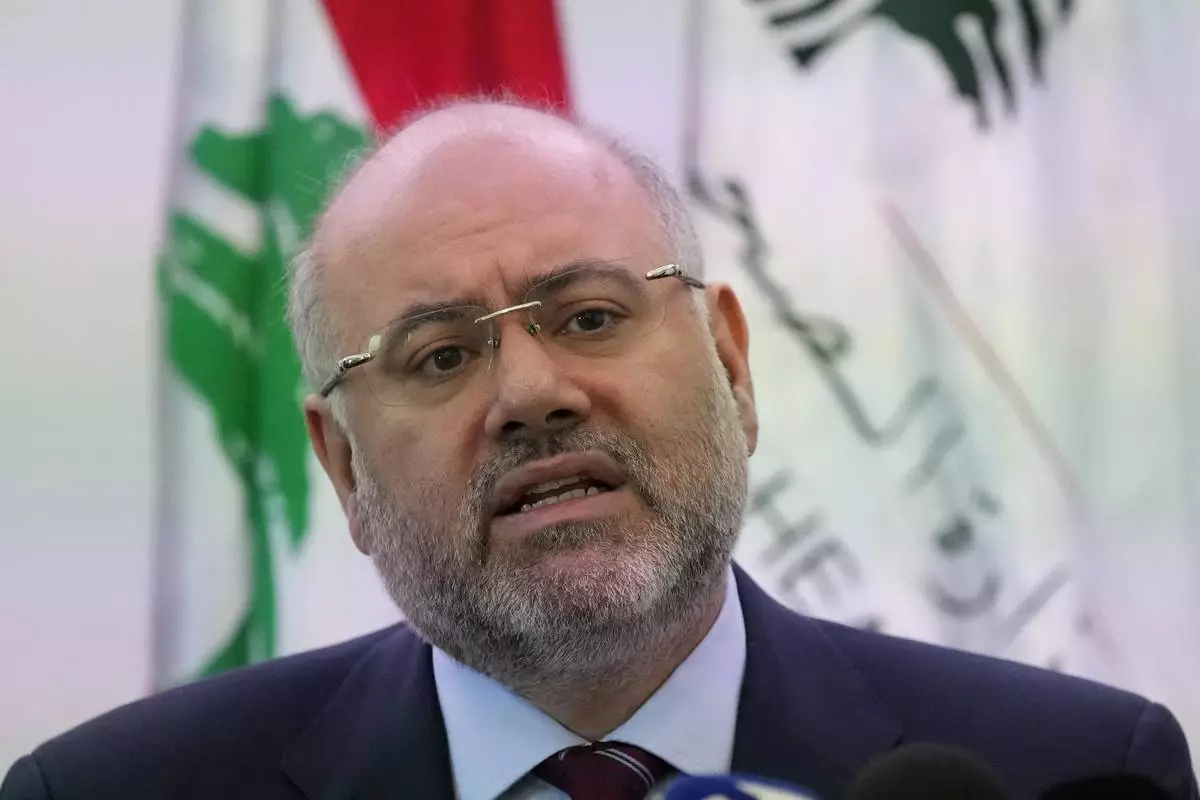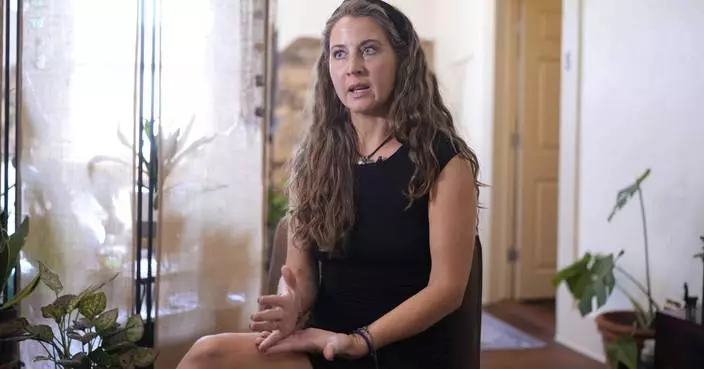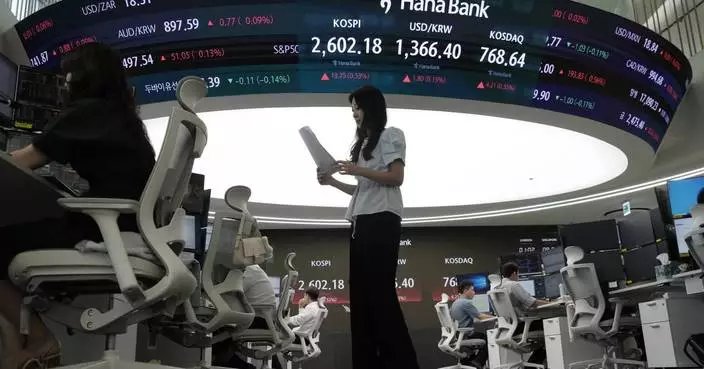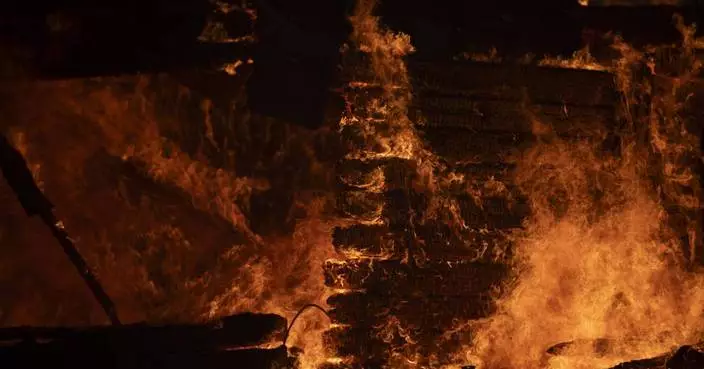WALLACE, La. (AP) — Sisters Jo and Dr. Joy Banner live just miles from where their ancestors were enslaved more than 200 years ago in St. John the Baptist Parish, Louisiana. Their tidy Creole cottage cafe in the small riverfront town of Wallace lies yards from property their great-grandparents bought more than a century ago.
It’s a historic area the sisters have dedicated themselves to keeping free of the heavy industry that lines the opposite shore of the Mississippi River.
“We have all these little pockets of free towns surrounding these plantation cane fields. It’s such a great story of tenacity and how we were able to be financially independent and economically savvy,” Joy Banner said.
Today, miles of sugarcane borders homes on Wallace's west side. Eastward, two plantations tell the story of enslaved people: One has more than a dozen slave quarters, the other a memorial commemorating a slave revolt.
Directly across the Mississippi, refineries and other heavy industry crowd the view, showing Wallace residents exactly what the Banners are fighting against taking over their side of the river. Together, they created a nonprofit called The Descendants Project to preserve Black Louisianans' culture. The immediate goal is to stop a 222-acre (90-hectare) proposed grain export facility from being built within 300 feet (91 meters) of the Banners’ property and near several historic sites.
“It would essentially pave the way for the whole entire West Bank area that doesn’t have any heavy industry on it to just be industrialized,” Jo Banner said. "We have a lot of heritage, and that’s going to be decimated if we get these plants.”
Their sentiments echo those of residents who live in other towns along Louisiana's Cancer Alley, an 85-mile (135-kilometer) corridor along the Mississippi River between New Orleans and Baton Rouge. It's filled with industrial plants that emit toxic chemicals, including known carcinogens.
The Descendants Project has tangled with Greenfield Louisiana LLC, the company proposing the grain terminal, as well as the local St. John the Baptist Parish Council, for nearly two years, seeking to prevent the Greenfield Wallace Grain Export Facility from being built.
It would receive and export grain byproducts via trucks, trains and barges. While some town residents support the project, the Banners and other neighbors fear it will eradicate historic landmarks and pollute the area.
“We already have issues with industry from the other side of the river,” said Gail Zeringue, whose husband’s family purchased their property in the late 19th century. “To add to that with a grain elevator is just piling it on.”
The Parish Council recently rezoned nearly 1,300 acres (526 hectares) of commercial and residential property for heavy industry. Another swath along a residential zone was redesignated for light industry. All the tracts are owned by the Port of Louisiana and have been leased to Greenfield Louisiana LLC.
The U.S. Army Corps of Engineers found the grain facility could adversely affect several historic properties in and around Wallace, including the Evergreen, Oak Alley and Whitney plantations. The U.S. Department of Health and Human Services said the terminal could add to the “many existing manufacturing industries and other existing sources of environmental burden for the St. John the Baptist Parish community.”
After nearly two years, Greenfield is still waiting for the permitting process to be complete.
"It appears to me that the Army Corps wants to make sure that everyone is heard,” said Lynda Van Davis, counsel and head of external affairs for Greenfield Louisiana. “Before we did anything, we talked to the community first, and so our system is safer, and it's green.”
The facility will be used for transportation, and there will be no chemicals or manufacturing on site, something Greenfield representatives said sets it apart. They also plan multiple dust collection systems to minimize emissions.
They are aware of Wallace’s historical significance, Van Davis said.
“We had testing done. We made sure that there were no remains of any prior slaves that were maybe buried in the area,” Van Davis said. “In the event that we do find any remains or maybe some artifacts, we would stop and make sure that the right people come in and preserve any artifacts that are found.”
Specifically, Greenfield said, the State Historic Preservation Office would step in. The Amistad Research Center, the Louisiana Civil Rights Museum and the state park system are also potential partners to help decide what to do with any artifacts or remains that might be discovered.
Some neighbors are more worried about Wallace’s future than its past. They're concerned the town’s prosperity hangs on whether the facility is approved. Wallace doesn't even have a gas station, and school enrollment has been declining.
“The only changes I’ve seen in my community are people leaving. We have absolutely nothing on our West Bank,” said Willa Gordon, a lifelong resident.
“It automatically meant to me jobs coming into my community and economic development and growth, so I was very excited. I’m disappointed that, years later, it’s still not here,” Nicole Dumas said.
Greenfield plans to create more than 1,000 new jobs during construction and 370 permanent positions once the site opens. The company also has promised to host local job fairs, training and certification programs.
St. John the Baptist Parish Council members Virgie Johnson and Lennix Madere Jr., the elected officials who represent Wallace, declined to comment on the proposed construction. Both voted in favor of the zoning change.
The tug-of-war between past and present is a familiar one across the country, with small, historic Black towns dwindling because of gentrification, industry or lack of resources.
Through their nonprofit, the Banners want to create a network of historic communities and economic opportunity. They recently moved a plantation house their ancestors once lived in to their property in hopes it can be given a historical marker and of preventing any industrial building on their land.
“We are doing what we can to protect and to hold on, but it’s so crucial that we keep these plants out,” Jo Banner said.
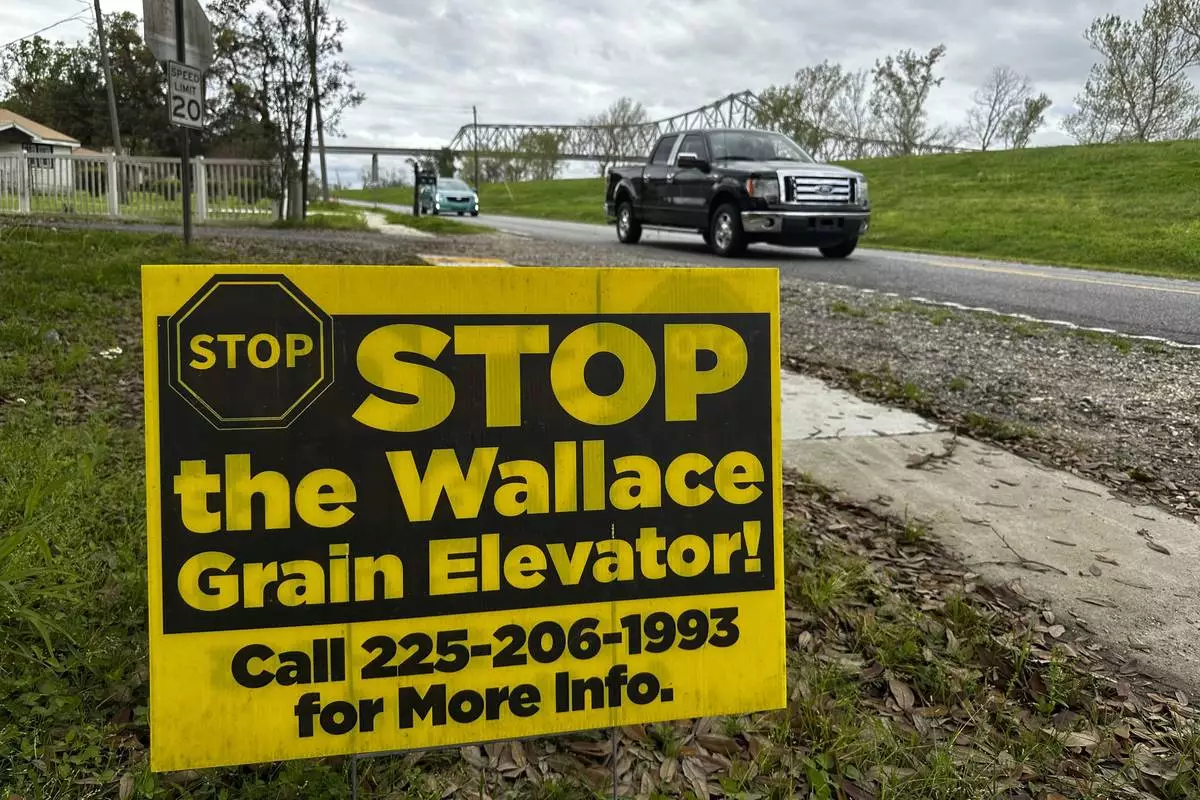
A sign that reads "Stop the Wallace Grain Elevator" sits in the front lawn of Fee-Fo-Lay Café, March 13, 2024, in Wallace, La. (AP Photo/Stephen Smith)
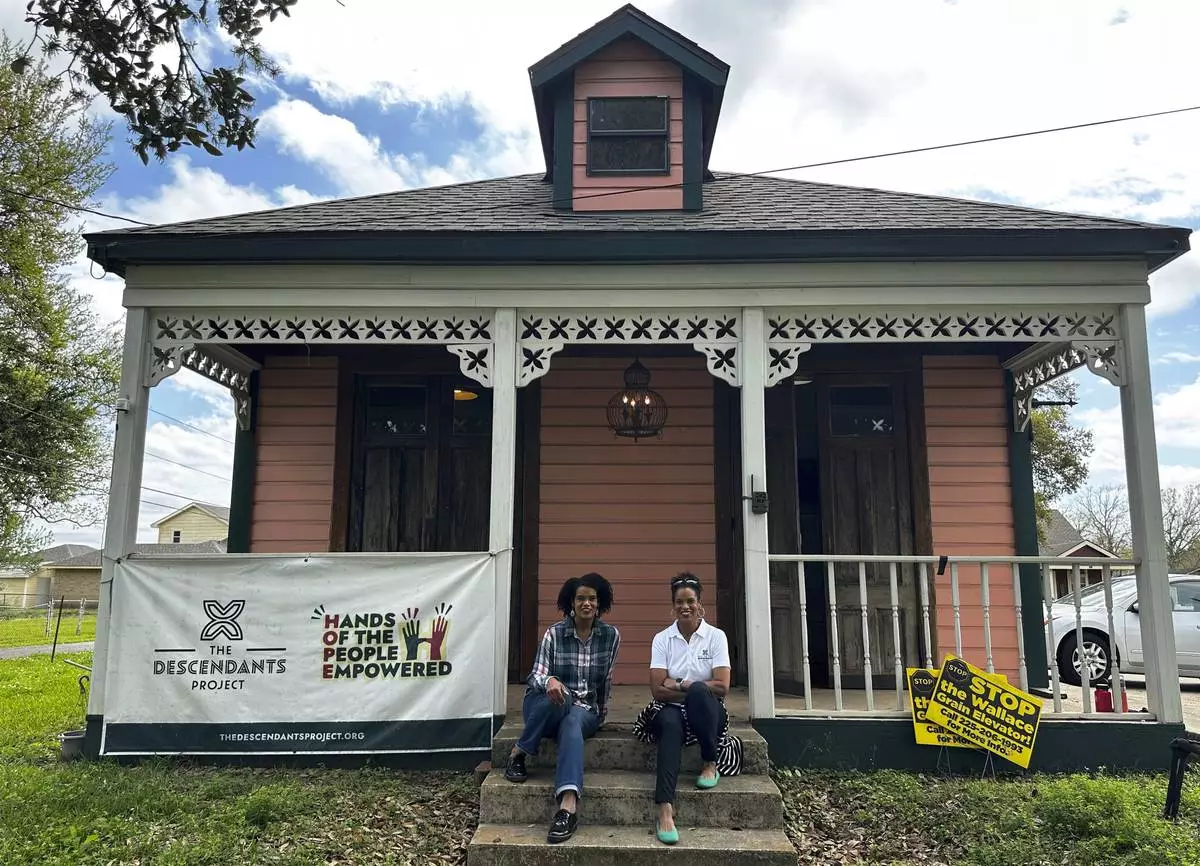
Twin sisters Jo and Joy Banner pose on the porch of their place of business, Fee-Fo-Lay Café, March 13, 2024, Wallace, La. (AP Photo/Stephen Smith)


